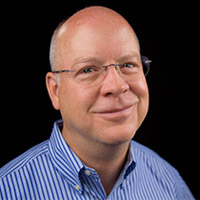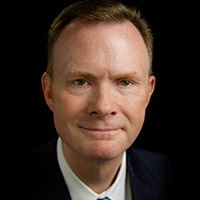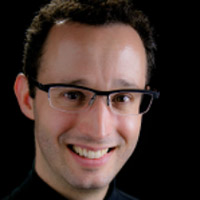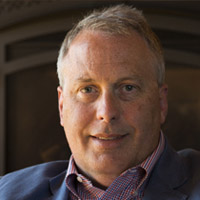Business Rebuilding Trust

Business Rebuilding Trust
By Shari Caudron
At companies where trust has been broken because of, say, high-profile executive wrongdoing, HR has to step up to the plate and help the leaders regain their credibility. Emmett Seaborn, a principal with Towers Perrin in Stamford, Connecticut, says this is done through an extensive communication effort that involves the following 12 steps:
1. Get your leaders in front of people. Let your people see leaders visibly handling the issue with candor, credibility, and concern.
2. Help your leaders avoid the spin. People will quickly see through any effort to shade the facts.
3. Tell all the news you have—even bad news. Save the time-release strategy for another time. Tell everything you know so that employees have little room to jump to their own conclusions.
4. Connect with all stakeholders. Communicate with all your constituencies, especially employees.
5. Reach beyond the media. Don’t just send a letter to employees, or let news reports do the talking for the company. Send flesh-and-blood humans to talk with employees about their concerns.
6. Offer the opportunity for dialogue. The translation and interpretation of messages happens through dialogue and demonstration, not by reading memos.
7. Balance high tech with high touch. Computers are great for fast communication, but they don’t replace in-person conversation and discussion.
8. Listen to your people. Ask how they are responding to the bad news and what questions they might have. The process doesn’t have to be formal. Just making the effort sends a positive message.
9. Communicate and involve more, not less. Don’t disappear. Avoid the natural reflex to clamp down when people most need to hear from you. When it feels like you’ve told your story over and over, you’ll know you’re on target.
10. Remind people of the fundamentals. Repeat, repeat, repeat why you are in business, how the business works, what the business needs to achieve, and how employees can contribute.
11. Help people see their roles. Communicate the business goals and the employee’s role in achieving them. Be clear about the rewards that will come from that effort.
12. Ask people to move on. Limit the permission to whine. Once you have communicated openly and thoroughly, ask people to move on. There is a point when an organization must stop focusing on crises and begin to focus again on serving customers, making money, and creating value for shareholders.
We hope you found this article about “Business Rebuilding Trust” helpful. If you have questions or need expert tax or family office advice that’s refreshingly objective (we never sell investments), please contact us or visit our Family office page or website www.GROCO.com.
To receive our free newsletter, contact us here.
Subscribe our YouTube Channel for more updates.

Alan Olsen, is the Host of the American Dreams Show and the Managing Partner of GROCO.com. GROCO is a premier family office and tax advisory firm located in the San Francisco Bay area serving clients all over the world.
Alan L. Olsen, CPA, Wikipedia Bio

GROCO.com is a proud sponsor of The American Dreams Show.

The American Dreams show was the brainchild of Alan Olsen, CPA, MBA. It was originally created to fill a specific need; often inexperienced entrepreneurs lacked basic information about raising capital and how to successfully start a business.
Alan sincerely wanted to respond to the many requests from aspiring entrepreneurs asking for the information and introductions they needed. But he had to find a way to help in which his venture capital clients and friends would not mind.
The American Dreams show became the solution, first as a radio show and now with YouTube videos as well. Always respectful of interview guest’s time, he’s able to give access to individuals information and inspiration previously inaccessible to the first-time entrepreneurs who need it most.
They can listen to venture capitalists and successful business people explain first-hand, how they got to where they are, how to start a company, how to overcome challenges, how they see the future evolving, opportunities, work-life balance and so much more..
American Dreams discusses many topics from some of the world’s most successful individuals about their secrets to life’s success. Topics from guest have included:
Creating purpose in life / Building a foundation for their life / Solving problems / Finding fulfillment through philanthropy and service / Becoming self-reliant / Enhancing effective leadership / Balancing family and work…

MyPaths.com (Also sponsored by GROCO) provides free access to content and world-class entrepreneurs, influencers and thought leaders’ personal success stories. To help you find your path in life to true, sustainable success & happiness. It’s mission statement:
In an increasingly complex and difficult world, we hope to help you find your personal path in life and build a strong foundation by learning how others found success and happiness. True and sustainable success and happiness are different for each one of us but possible, often despite significant challenges.
Our mission at MyPaths.com is to provide resources and firsthand accounts of how others found their paths in life, so you can do the same.
The Fundamental Purpose of Technology | Peter Adams
About Peter Adams Peter Adams is Founder & CEO of Lighthouse, having launched the firm 33 years ago while working as a deployment specialist in the health care information systems arena. In a moment of epiphany, he realized that the primary goals of his complex projects were not to make some new IT technology…
Anthony Thompson – United Business Bank
About Anthony Thompson Anthony is a Senior Vice President, Commercial Loan Officer at United Business Bank. Prior to his career in Banking Anthony was Vice President, Director of Marketing at Proudfoot Consulting/Phillip Crosby Associates. Anthony also worked as special assistant to US Senator David D. Karnes, and the first woman elected to the US Senate,…
ModuleQ | David Brunner
About David Brunner In 2011 David Brunner founded ModuleQ, a SAS based company to prevent knowledge workers from being overloaded with information. Before founding ModuleQ, David received a PhD from Harvard University in Information, Technology & Management, a joint program integrating business and computer science. Upon Graduating from Harvard, he worked with the CIO…




